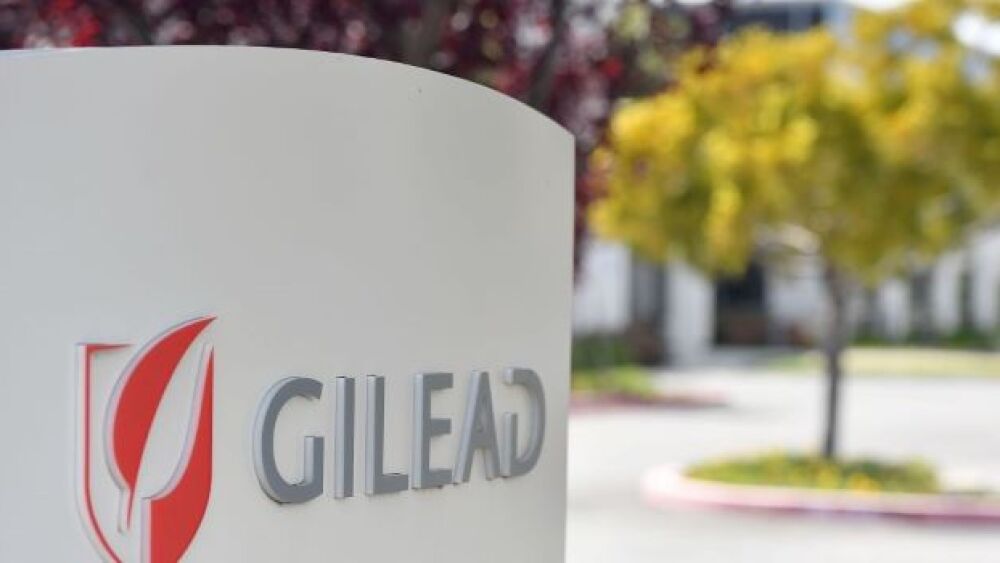The verdict, rendered by a California jury on Friday, found that the companies did not engage in an anticompetitive conspiracy to delay generic versions of HIV PreEP medicines.
Pictured: Gilead sign in front of green tree/Getty Images, JOSH EDELSON/AFP
Gilead and Teva Pharmaceuticals have prevailed in a four-year-long lawsuit that alleged the companies struck an illegal deal leading to price inflation for HIV drugs.
On Friday, a California jury unanimously found that the companies did not engage in an anticompetitive conspiracy to delay generic versions of Truvada—an HIV pre-exposure prophylaxis (PrEP) medicine—as well as other drugs, multiple outlets report.
The lawsuit was filed in 2019 by consumers and other direct purchasers, including the Blue Cross Blue Shield Association, claiming that Gilead maintained a monopoly in the HIV drug market by unlawfully extending patent protection for its drugs in an attempt to delay the entry of generic competitors.
The plaintiffs alleged that Gilead struck “pay-to-delay” deals with companies including Teva. This particular suit claimed that Gilead and Teva illegally reached a deal in 2014 to end patent litigation between the two companies. Gilead allegedly paid Teva a “reverse payment” of $1 billion in a patent settlement so that the latter would put generic versions of Truvada and another similar drug back on the shelf, per Bloomberg Law.
The plaintiffs had sought $3.6 billion in damages, but a jury in the U.S. District Court for the Northern District of California decided that the 2014 deal did not violate antitrust law.
In separate litigation also filed in 2019, eight patients who took Truvada and other tenofovir-based drugs claimed that Foster City, Calif.–based Gilead deliberately withheld a safer version of the drugs from the market in what they called a “patent-timing scheme” to maximize profits. The company has not announced the outcome of this suit.
Truvada Caught Up in Lawsuits
The verdict marks Gilead’s second Truvada-related victory in as many months. In May, a Delaware jury ruled that the blockbuster drug, along with another HIV prevention medicine called Descovy, did not infringe on government patents and, additionally, that the patents themselves were invalid.
In this lawsuit, the Trump administration, through the Department of Human and Health Services, claimed that the two-drug regimen that forms the basis of Truvada and Descovy was first invented and proposed for prophylaxis by researchers at the Centers for Disease Control and Prevention in the early 2000s and that Gilead had overstated its role in the invention.
Truvada was approved for HIV PrEP in 2012. Descovy, an upgraded version of Truvada, won approval in October 2019 for the same purpose. The government filed its lawsuit a month later. Most recently, on June 21, the government requested that a federal judge overturn the May decision.
Descovy reached blockbuster status in 2022, netting Gilead just over $1.6 billion in U.S. revenue, while Truvada brought in $113 million, according to the company’s fourth-quarter and full-year earnings report.
Heather McKenzie is a senior editor at BioSpace, focusing on neuroscience, oncology and gene therapy. You can reach her at heather.mckenzie@biospace.com. Follow her on LinkedIn and Twitter @chicat08.






